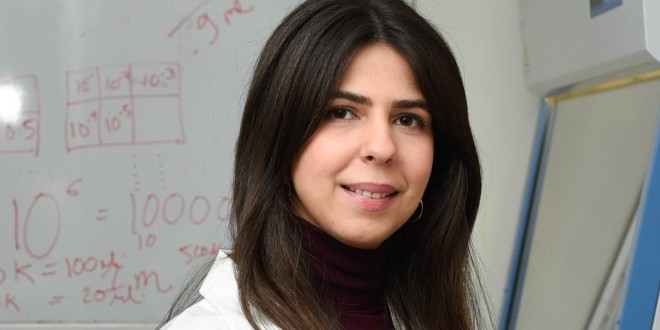Hardly anyone knew what a genetic “variant” was two years ago. Now we all know and suffer as a result. It is a permanent change in the DNA sequence that makes up a gene. This type of genetic change used to be known as a gene mutation, but because changes in DNA don’t always cause disease, it is thought that gene variant is a more accurate term. Variants can affect one or more DNA building blocks (nucleotides) in a gene.
Most studies on the development of new coronavirus variants focus on the dynamics within the population. Researchers at the Technion-Israel Institute of Technology in Haifa now present new findings on the development of the virus within the individual – what happens inside the patient’s body.
The COVID-19 pandemic began in late 2019 and spread rapidly around the world. Although the original form of the novel coronavirus – SARS-CoV-2 – was armed with an effective system against mutations, it was not immune to them. Indeed, the virus has since “split” into variants according to differing evolutionary variables in different populations.
The World Health Organization (WHO) decided not to give complicated names to each variant and has instead named the variants after letters of the Greek alphabet – Alpha for the British variant, Beta for the South African, Gamma for the Brazilian, Delta for the Indian and so on. The development of new variants is the result of random mutations and natural selection.
Most mutations do not significantly alter the virus’s ability to survive and infect, but some give it a significant advantage to thrive and spread in the community. In the context of the current pandemic, these mutations occur in the spike protein – the arrowhead of the virus – which allows it to penetrate the cells in our body.
Many research groups are currently studying the mechanism for the development of new coronavirus variants by analyzing their evolution and specifically the evolution of the spike protein. These studies have allowed for the unprecedented development of dedicated and effective mRNA vaccines.
What most of these studies have in common is that they focus on the dynamics of the formation of variants in the population and on the more “active” variants in terms of infection in the population. A study carried out at the Technion and just published in PLoS [Public Library o Science] Pathogens under the title “SARS-CoV-2 variants with reduced infectivity and varied sensitivity to the BNT162b2 vaccine are developed during the course of infection” sheds light on a lesser-studied area – new variants at the individual level, or, in other words, what happens in the body of patients during their illness.
The study was led by assistant professor Yotam Bar-On and doctoral student Dina Khateeb, both of the Technion’s Rappaport Faculty of Medicine.
Their work is the culmination of a year and a half of work and is based on an experimental platform that Bar-On began developing during his postdoc. The technology, initially developed as part of HIV research, provided sequencing on an individual level, mapping the genome of the individual virus, and comparing different variants that developed in the patient’s respiratory system. In addition, it can detect a very low doses of virus found in tissue cells that do not show up with simpler methods.
During the study, the researchers discovered various mutations not included in existing databases and even a new, previously unknown variant. The researchers also examined the efficacy of existing vaccines against these variants and found that the efficacy varies depending on the different types of mutations in the spike protein.
The good news is that the mutations that develop in the patient’s body produce, as a rule, variants with a relatively low adhesion capacity. In other words, these variants may not be able to be transmitted from person to person. This hypothesis still requires further research, the researchers emphasized, but these findings hold true for the 10 variants examined to date in the study.
The researchers identified a specific mutation in s2 – one of the spike proteins, which impairs the effectiveness of antibodies battling the virus. “This identification is an important factor in understanding the adaptation of the virus to its host’s body,” explained Bar-On. “We appreciate that our findings may lead to the detection of weaknesses of the virus – mechanisms that weaken its ability to infect – and to develop new measures to curb infection.”
The findings show that analysis of the evolution of the virus at an individual level contributes to a better understanding of its development and of possible ways to combat it using vaccines and drugs. The researchers, who have focused on mutations related to the Alpha variant, estimate that a similar analysis of the Delta variant – currently the most dangerous strain – may increase the toolbox available to science and medicine in the fight against the pandemic.
Bar-On completed a doctorate from the Hebrew University of Jerusalem (HUJI)and a postdoctoral fellowship at Rockefeller University in New York. He is head of a Technion lab that studies the interaction between viruses and the host organism in various diseases, including Coronavirus and HIV.
Khateeb earned a bachelor’s of science degree. in medical life sciences from Hadassah College and an master’s of science degree in biomedical sciences from HUJI. She joined the Bar-On lab at the Technion shortly after the outbreak of the pandemic and immediately began studying the evolution of the coronavirus. The current study was based on samples from that period – using some of the first samples taken from coronavirus patients in Israel.




